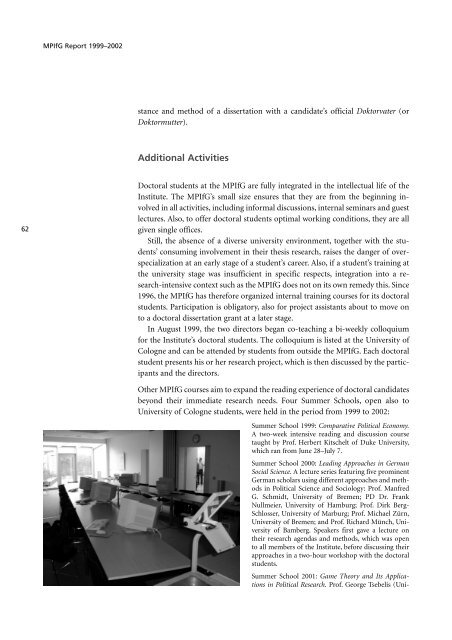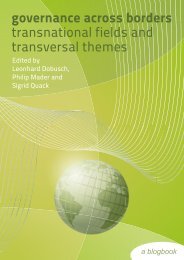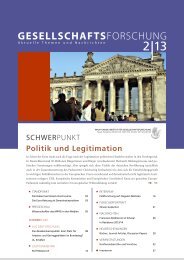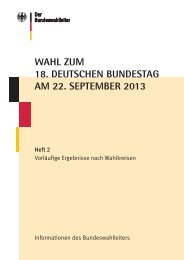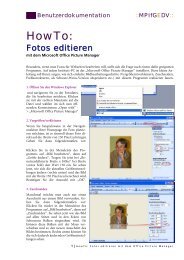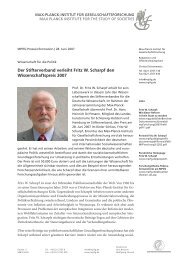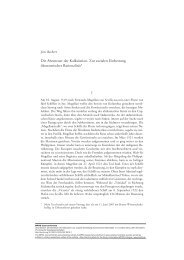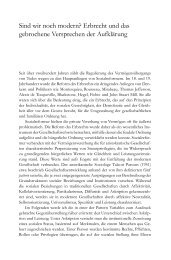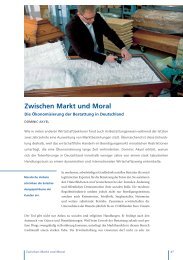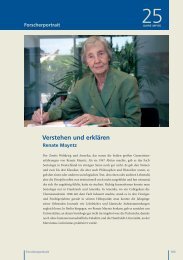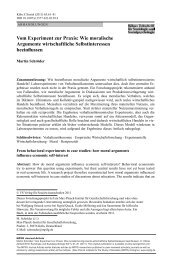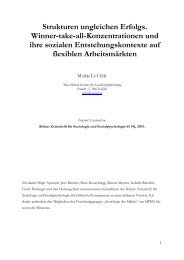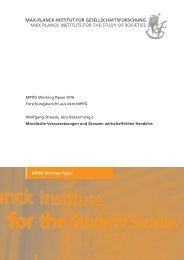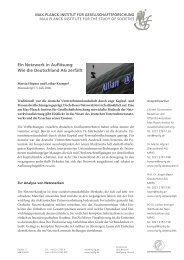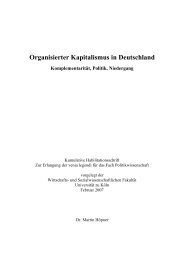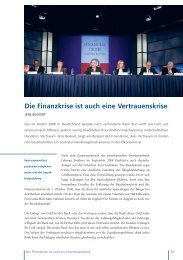Publications - MPIfG
Publications - MPIfG
Publications - MPIfG
You also want an ePaper? Increase the reach of your titles
YUMPU automatically turns print PDFs into web optimized ePapers that Google loves.
62<br />
<strong>MPIfG</strong> Report 1999–2002<br />
stance and method of a dissertation with a candidate’s official Doktorvater (or<br />
Doktormutter).<br />
Additional Activities<br />
Doctoral students at the <strong>MPIfG</strong> are fully integrated in the intellectual life of the<br />
Institute. The <strong>MPIfG</strong>’s small size ensures that they are from the beginning involved<br />
in all activities, including informal discussions, internal seminars and guest<br />
lectures. Also, to offer doctoral students optimal working conditions, they are all<br />
given single offices.<br />
Still, the absence of a diverse university environment, together with the students’<br />
consuming involvement in their thesis research, raises the danger of overspecialization<br />
at an early stage of a student’s career. Also, if a student’s training at<br />
the university stage was insufficient in specific respects, integration into a research-intensive<br />
context such as the <strong>MPIfG</strong> does not on its own remedy this. Since<br />
1996, the <strong>MPIfG</strong> has therefore organized internal training courses for its doctoral<br />
students. Participation is obligatory, also for project assistants about to move on<br />
to a doctoral dissertation grant at a later stage.<br />
In August 1999, the two directors began co-teaching a bi-weekly colloquium<br />
for the Institute’s doctoral students. The colloquium is listed at the University of<br />
Cologne and can be attended by students from outside the <strong>MPIfG</strong>. Each doctoral<br />
student presents his or her research project, which is then discussed by the participants<br />
and the directors.<br />
Other <strong>MPIfG</strong> courses aim to expand the reading experience of doctoral candidates<br />
beyond their immediate research needs. Four Summer Schools, open also to<br />
University of Cologne students, were held in the period from 1999 to 2002:<br />
Summer School 1999: Comparative Political Economy.<br />
A two-week intensive reading and discussion course<br />
taught by Prof. Herbert Kitschelt of Duke University,<br />
which ran from June 28–July 7.<br />
Summer School 2000: Leading Approaches in German<br />
Social Science. A lecture series featuring five prominent<br />
German scholars using different approaches and methods<br />
in Political Science and Sociology: Prof. Manfred<br />
G. Schmidt, University of Bremen; PD Dr. Frank<br />
Nullmeier, University of Hamburg; Prof. Dirk Berg-<br />
Schlosser, University of Marburg; Prof. Michael Zürn,<br />
University of Bremen; and Prof. Richard Münch, University<br />
of Bamberg. Speakers first gave a lecture on<br />
their research agendas and methods, which was open<br />
to all members of the Institute, before discussing their<br />
approaches in a two-hour workshop with the doctoral<br />
students.<br />
Summer School 2001: Game Theory and Its Applications<br />
in Political Research. Prof. George Tsebelis (Uni-


